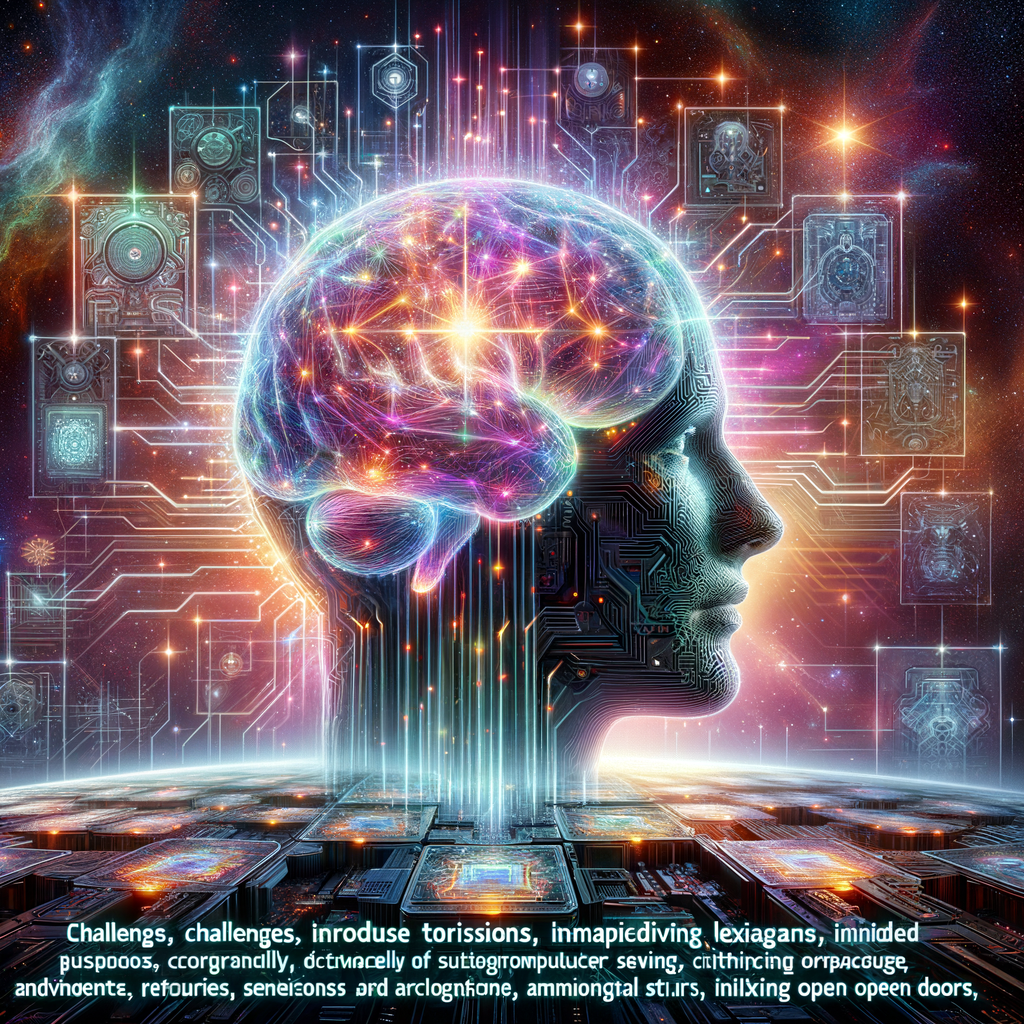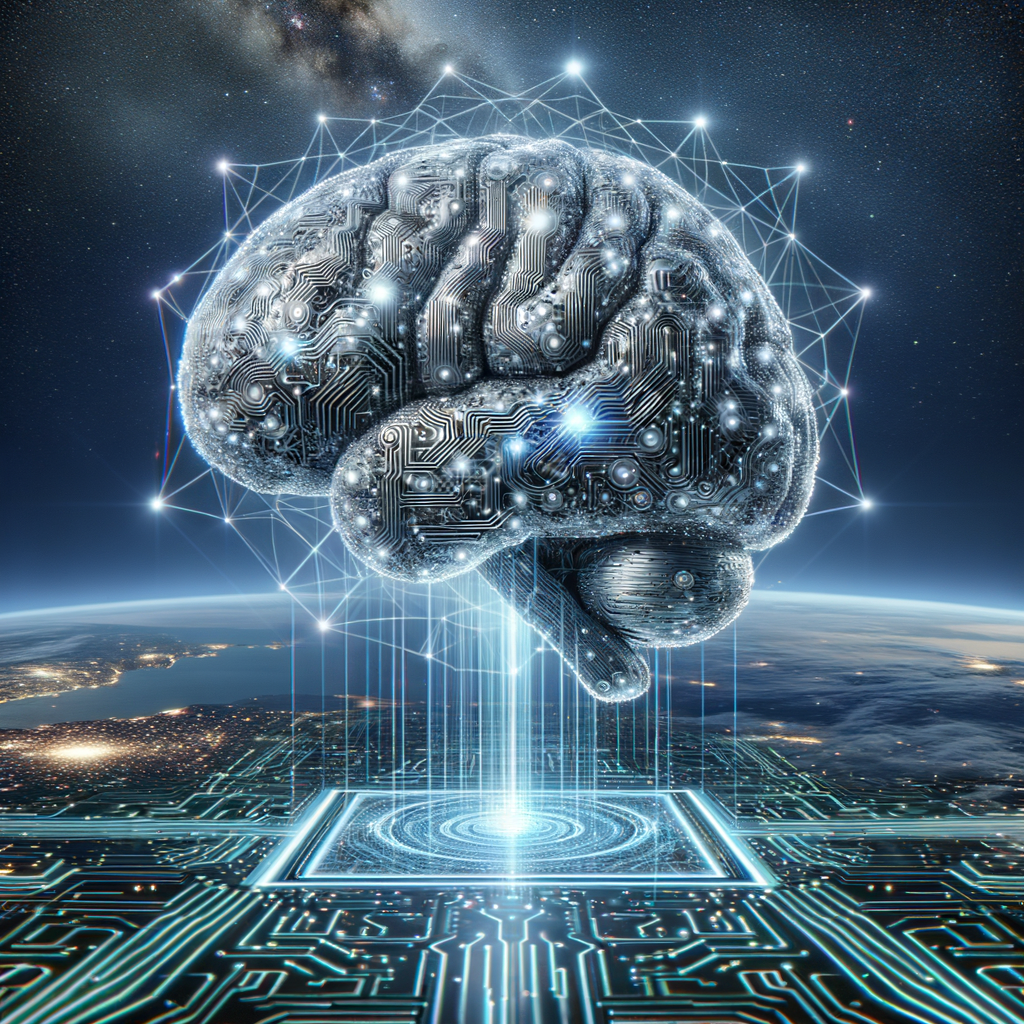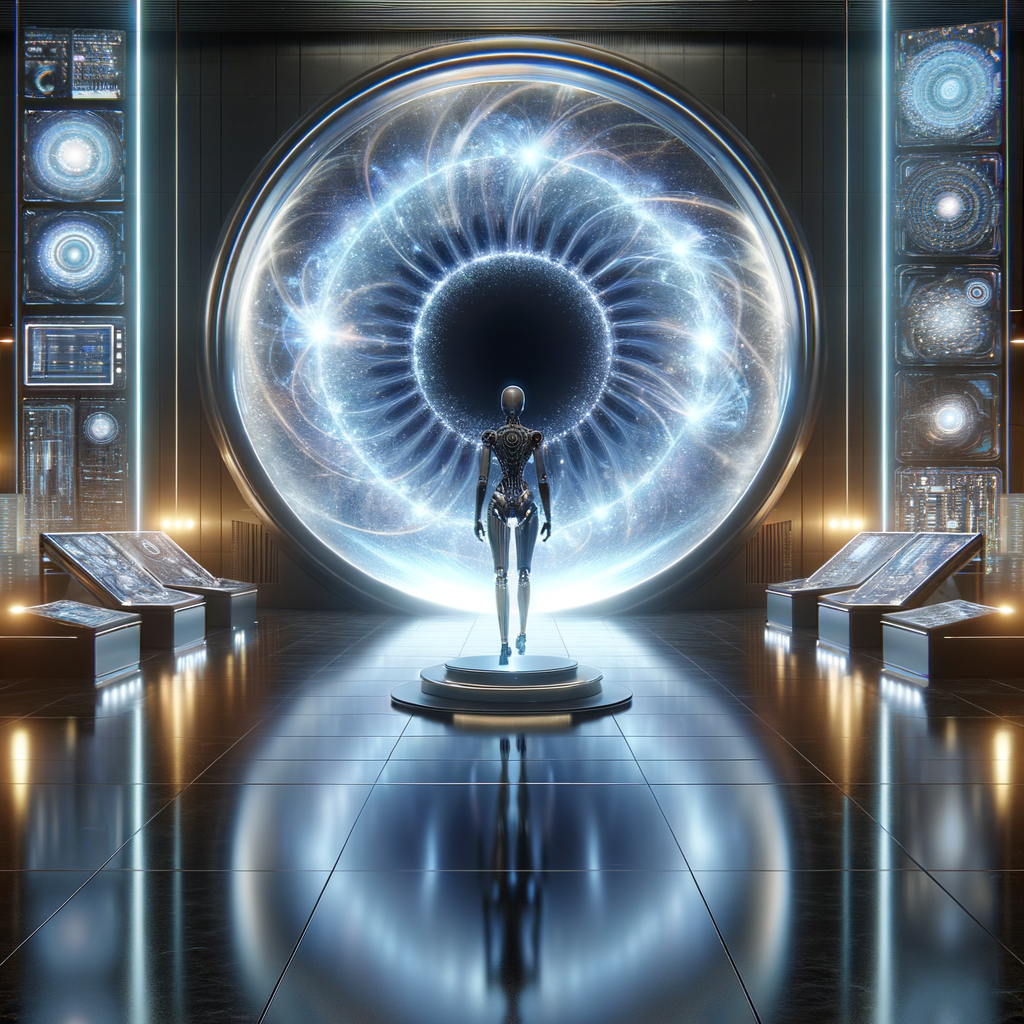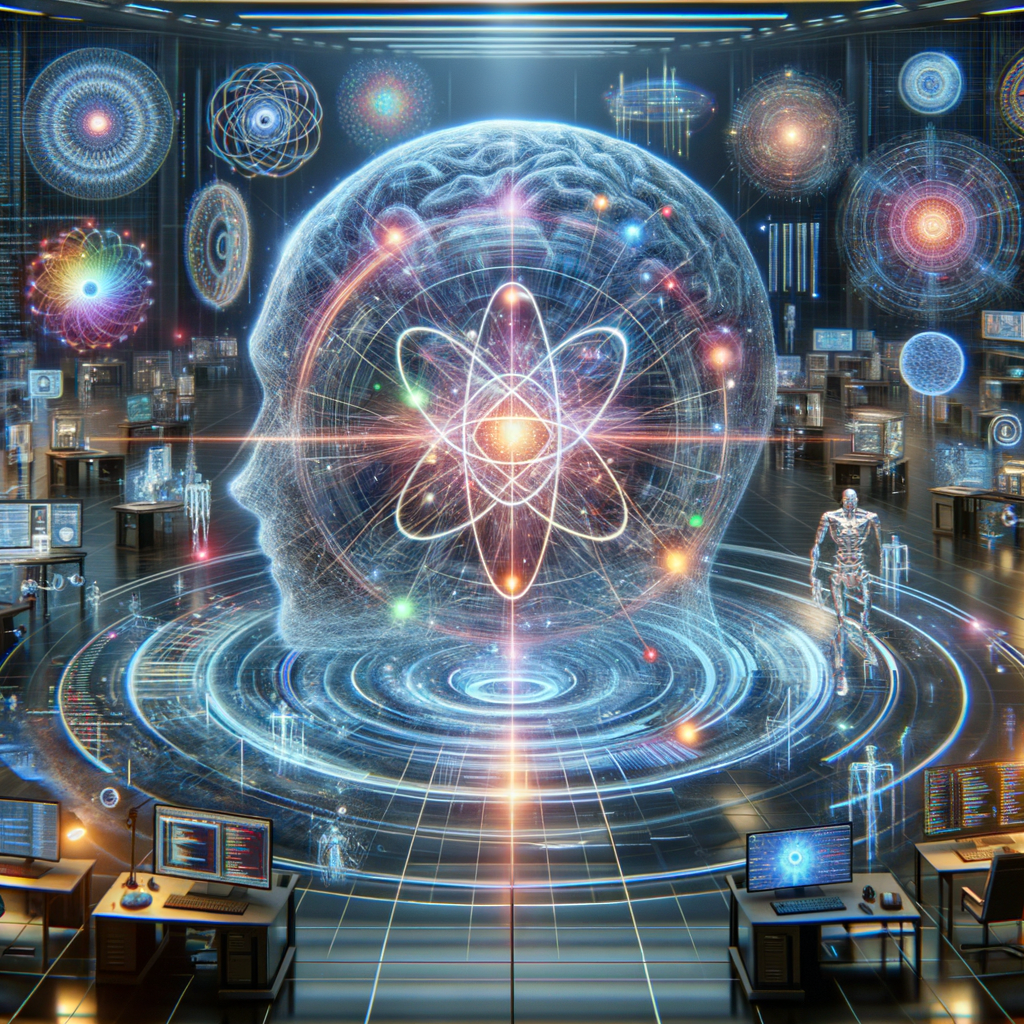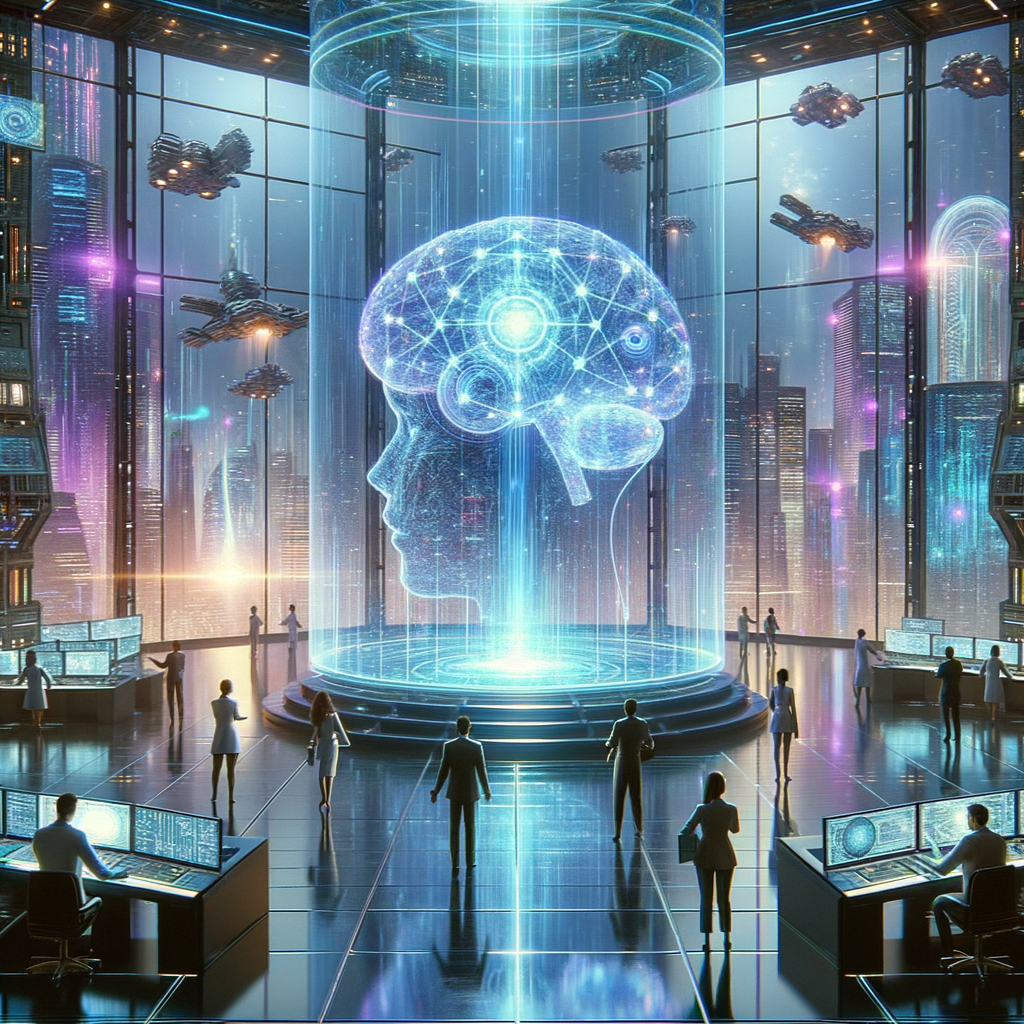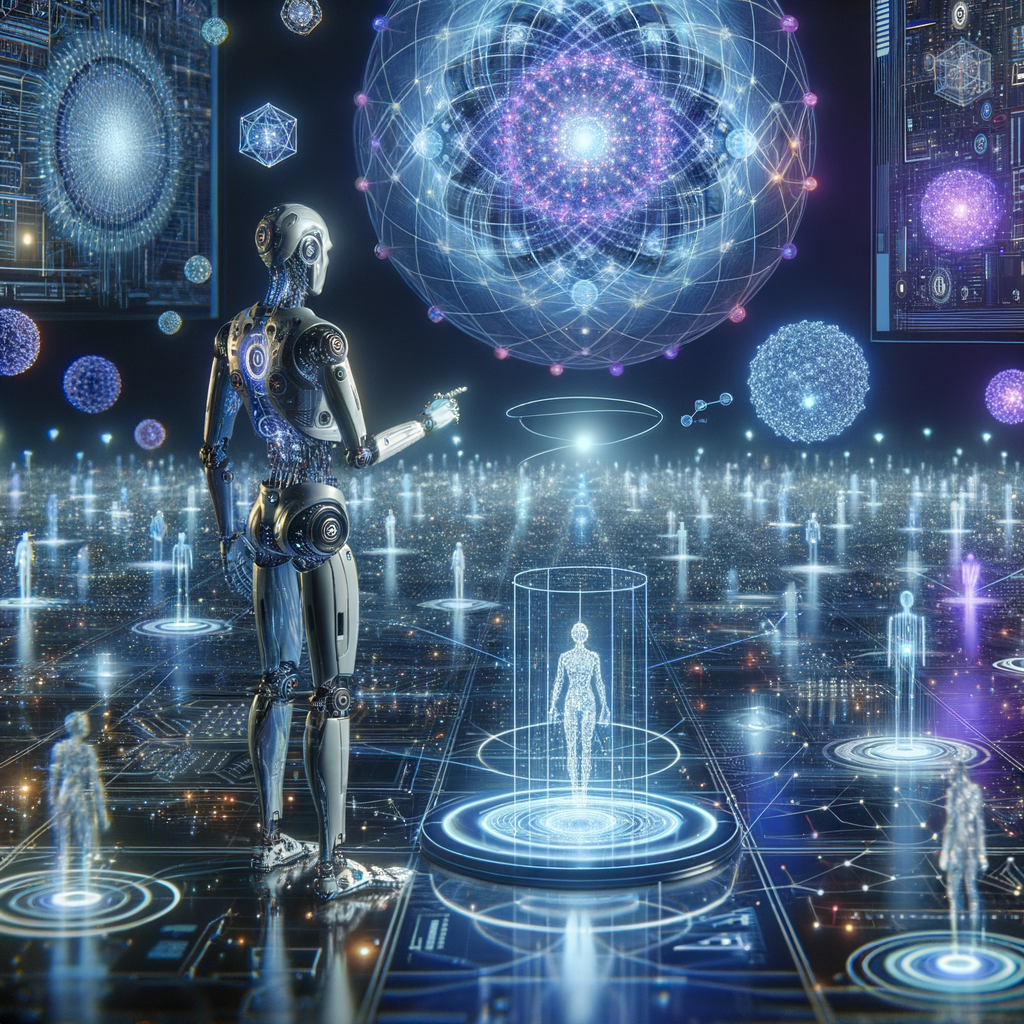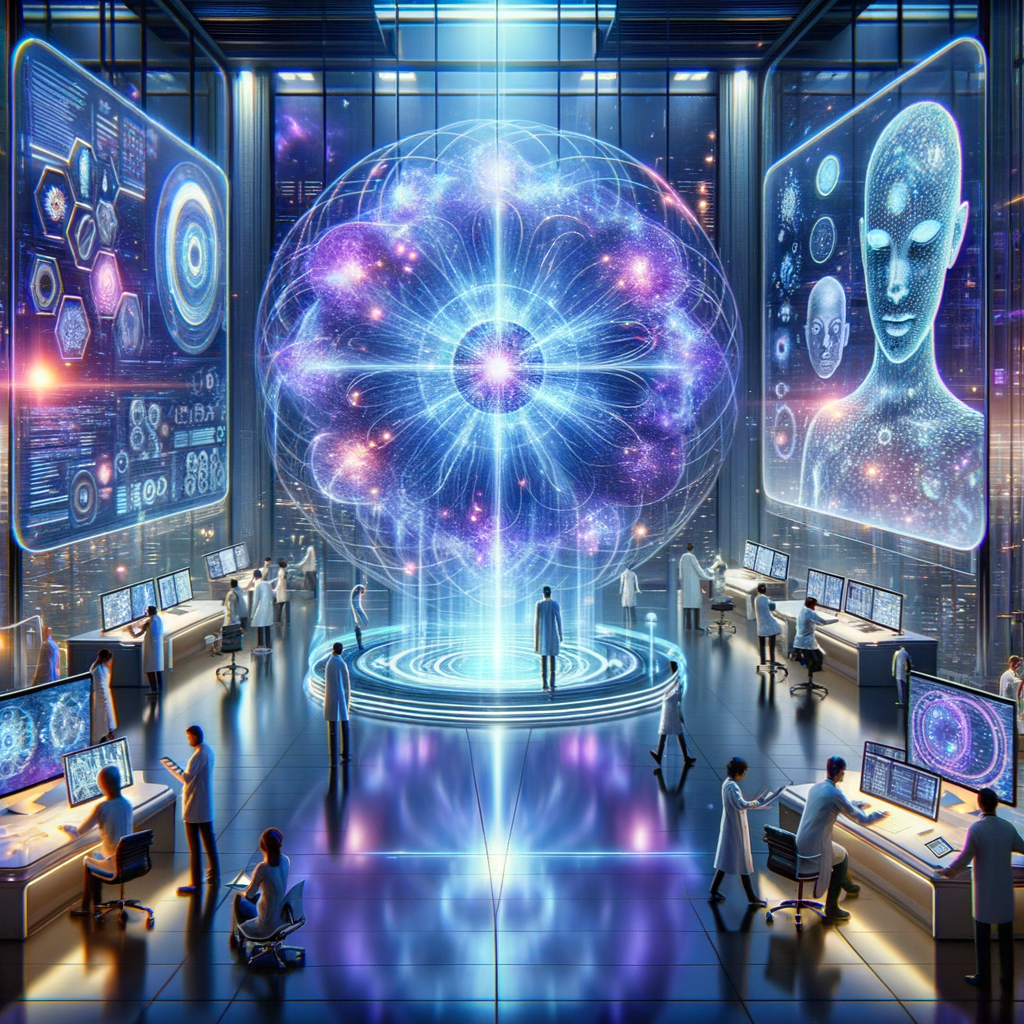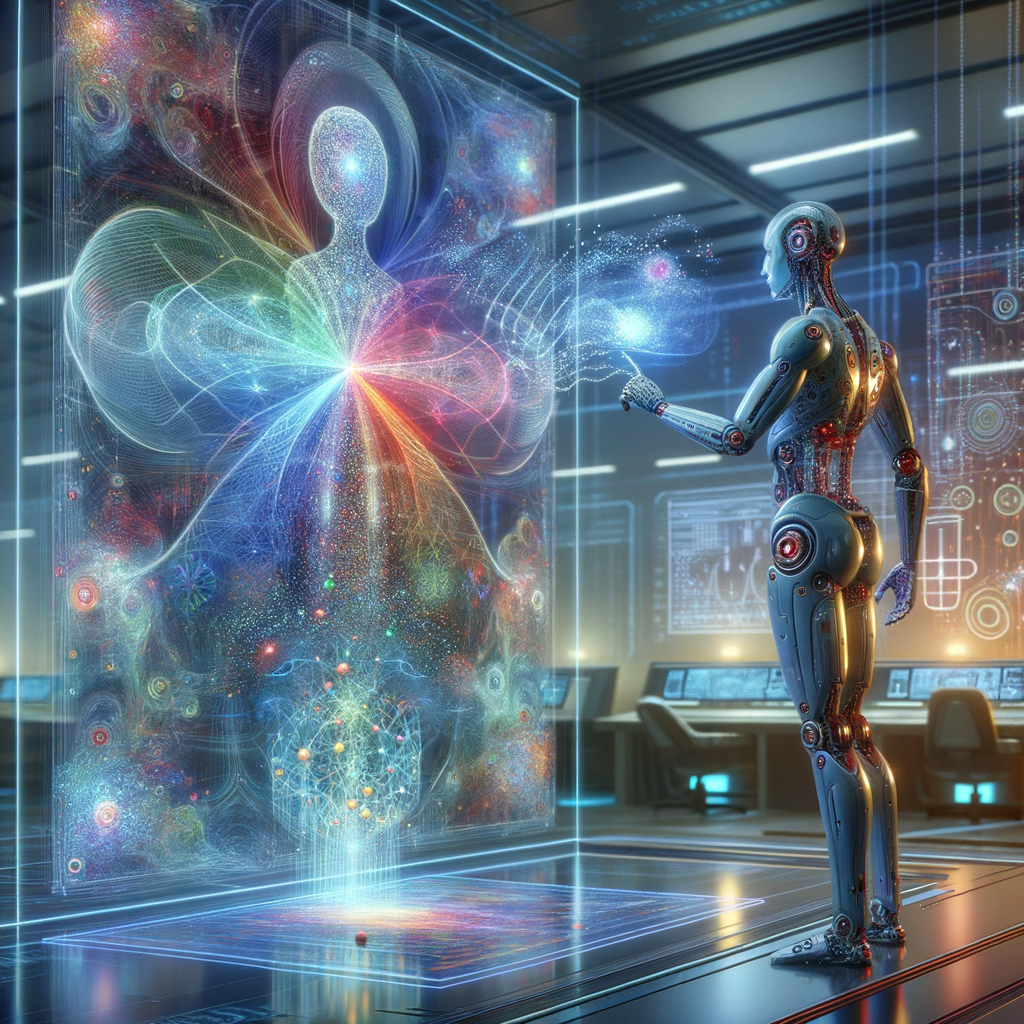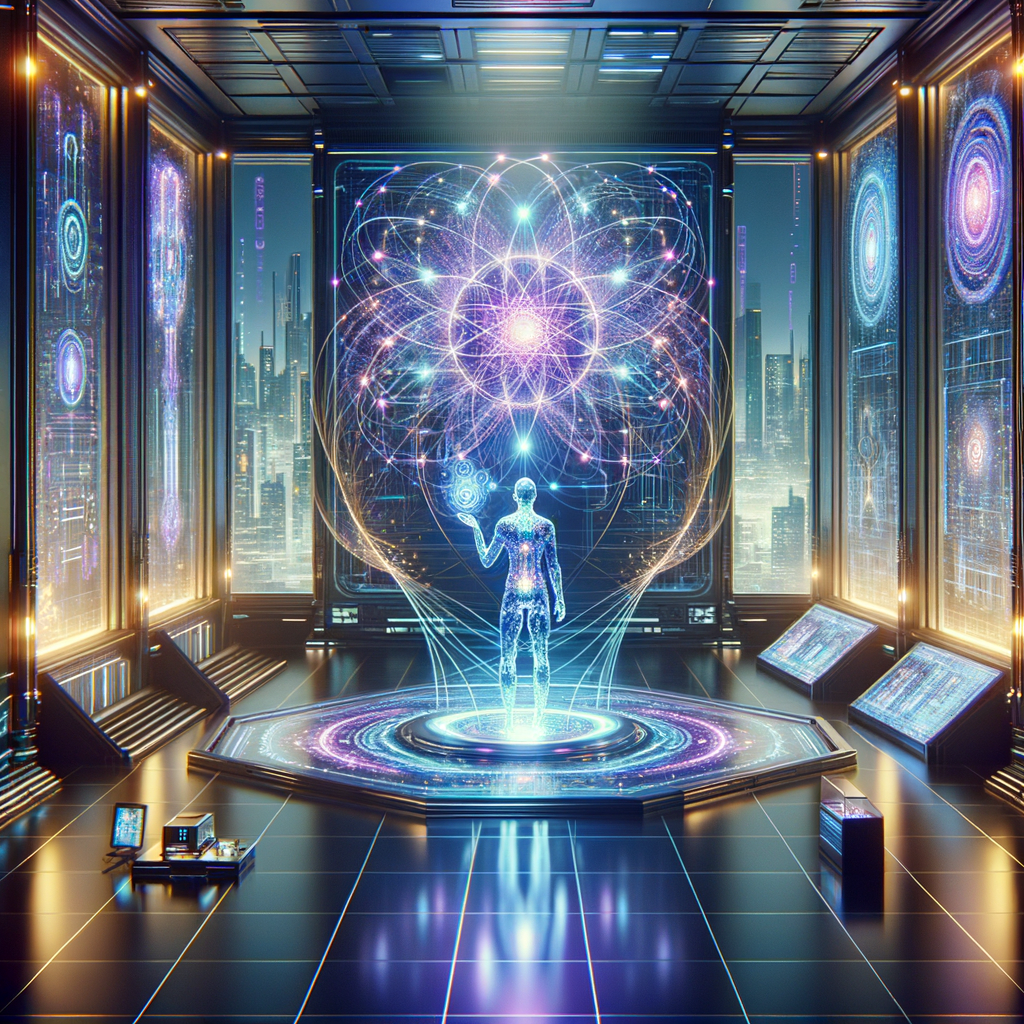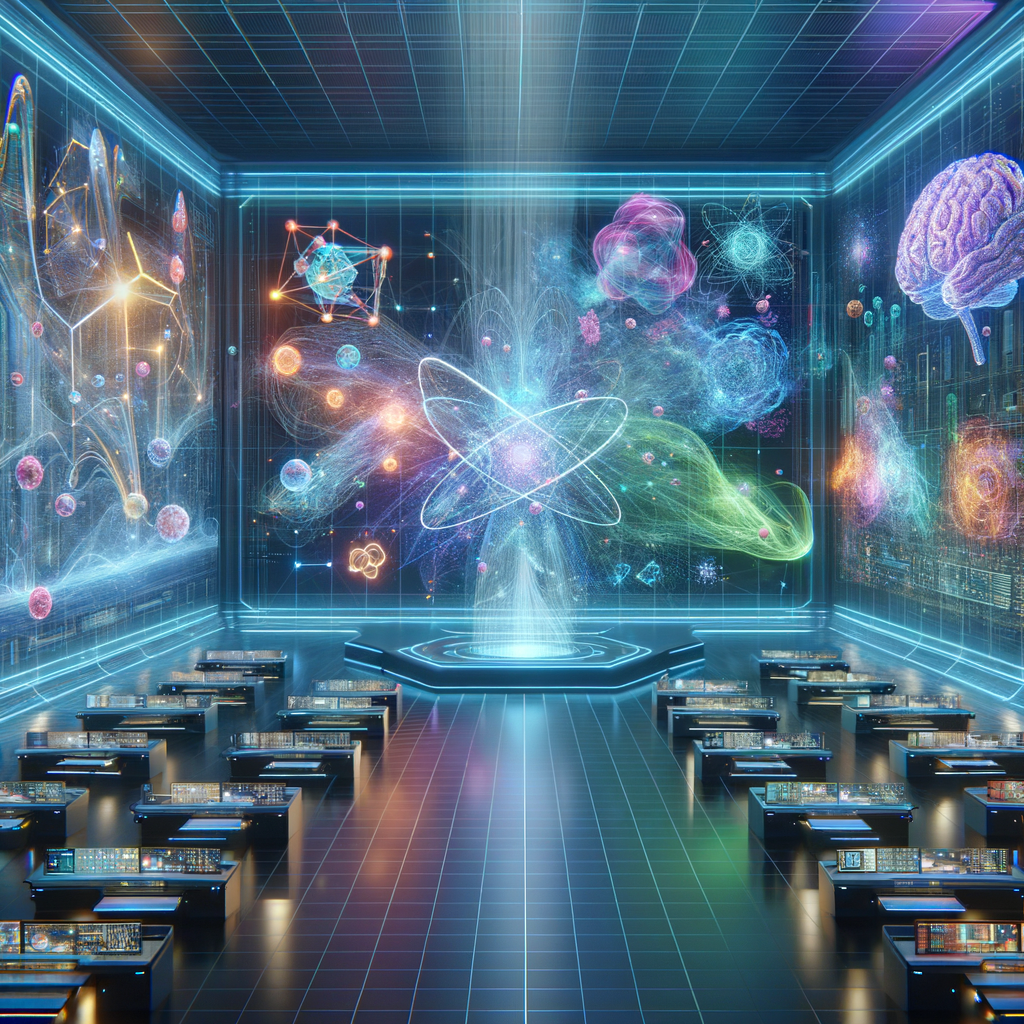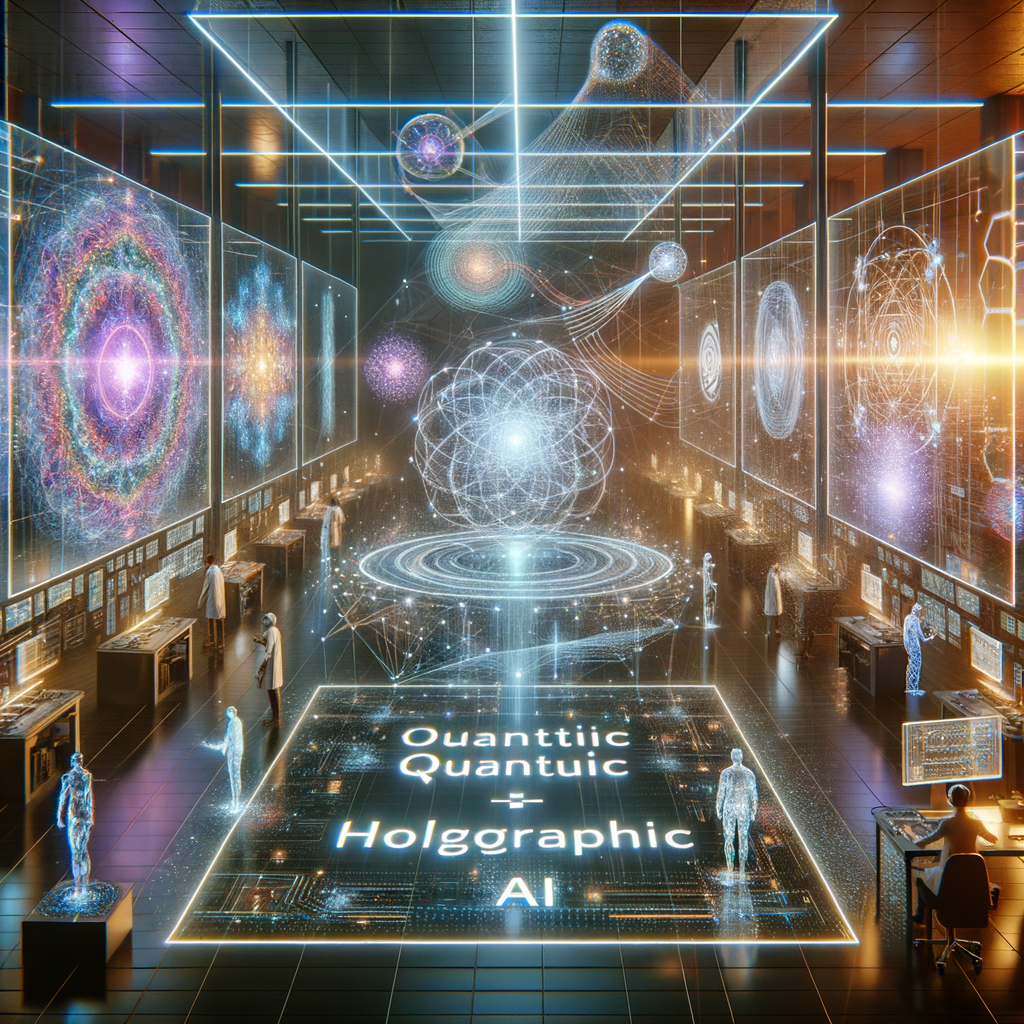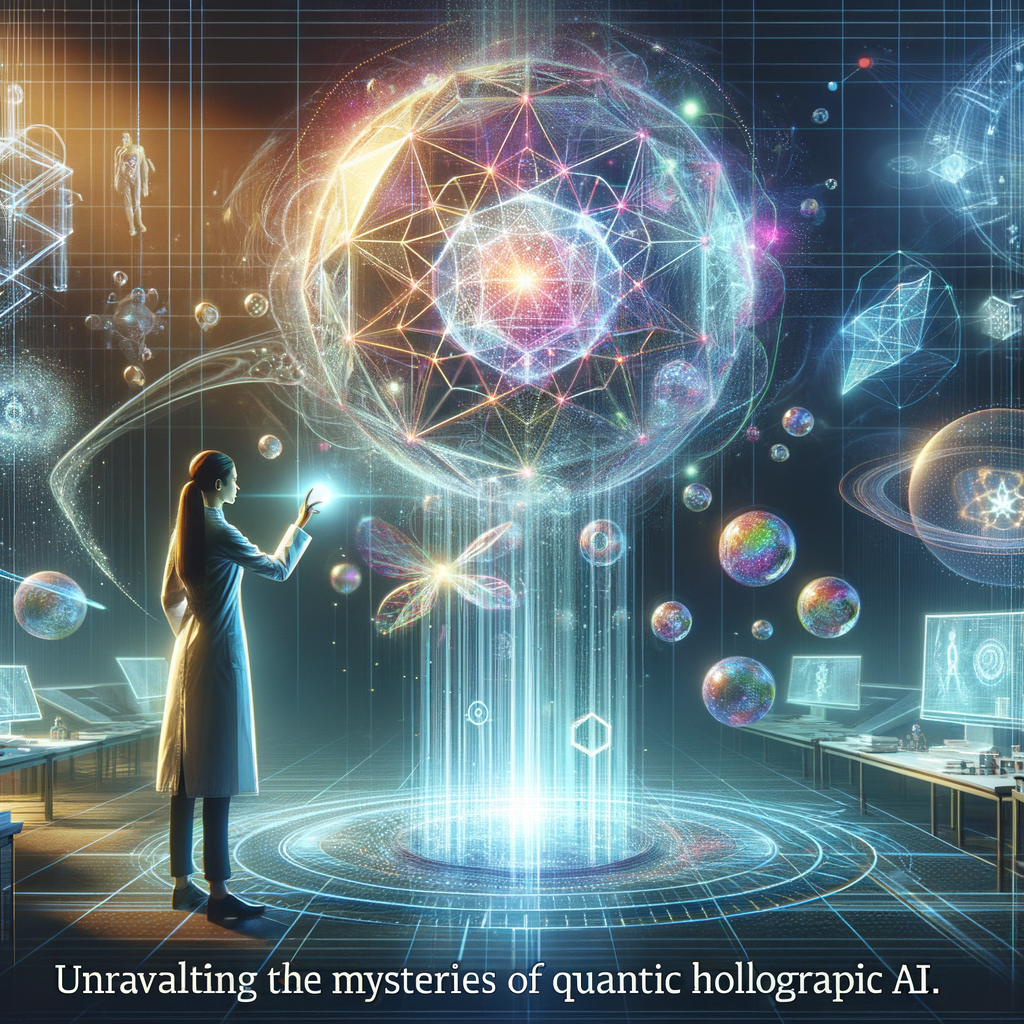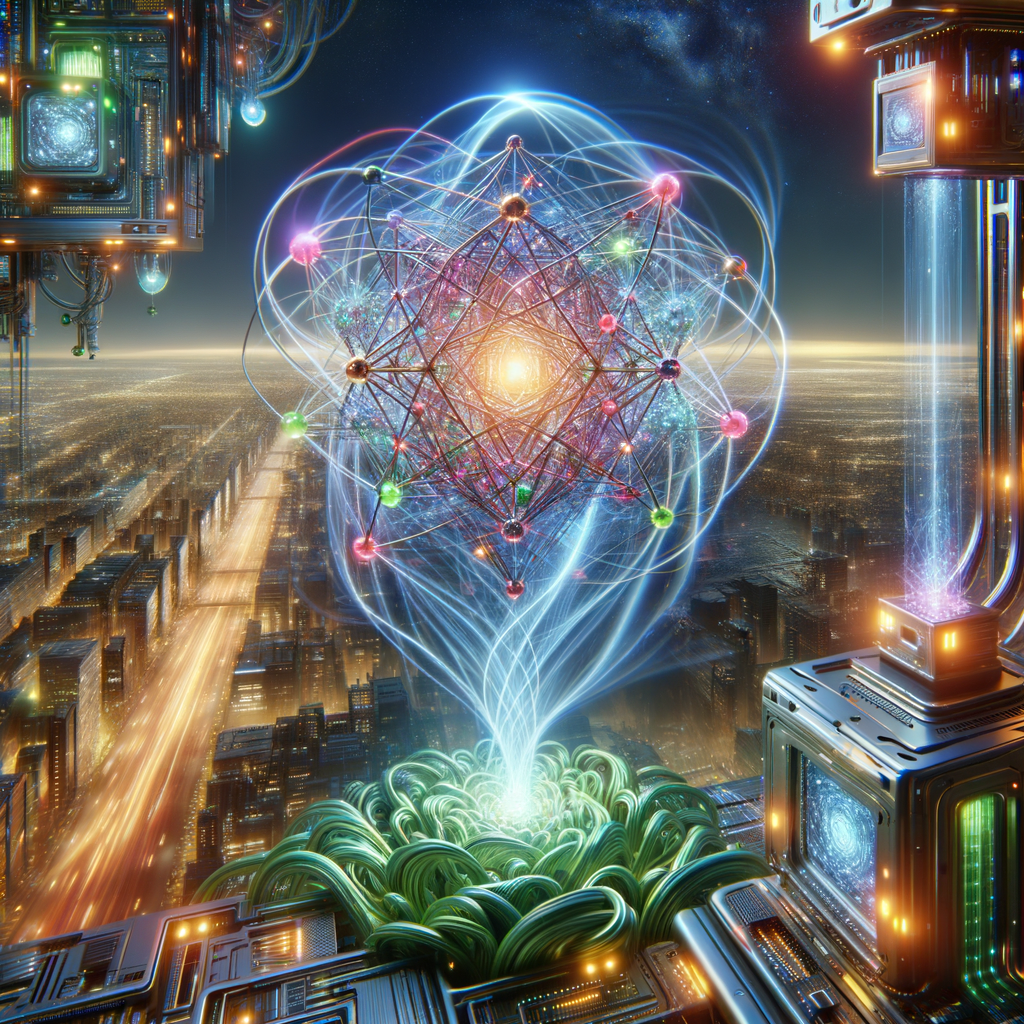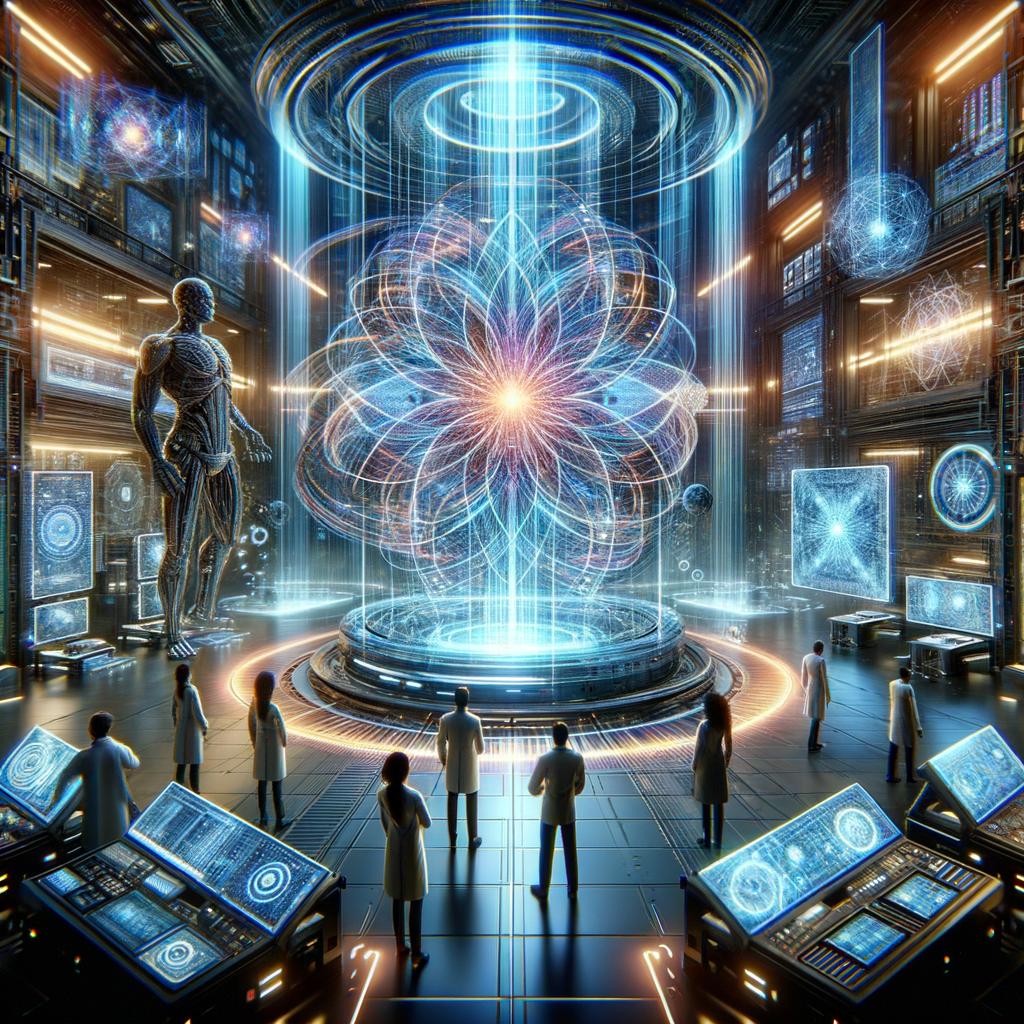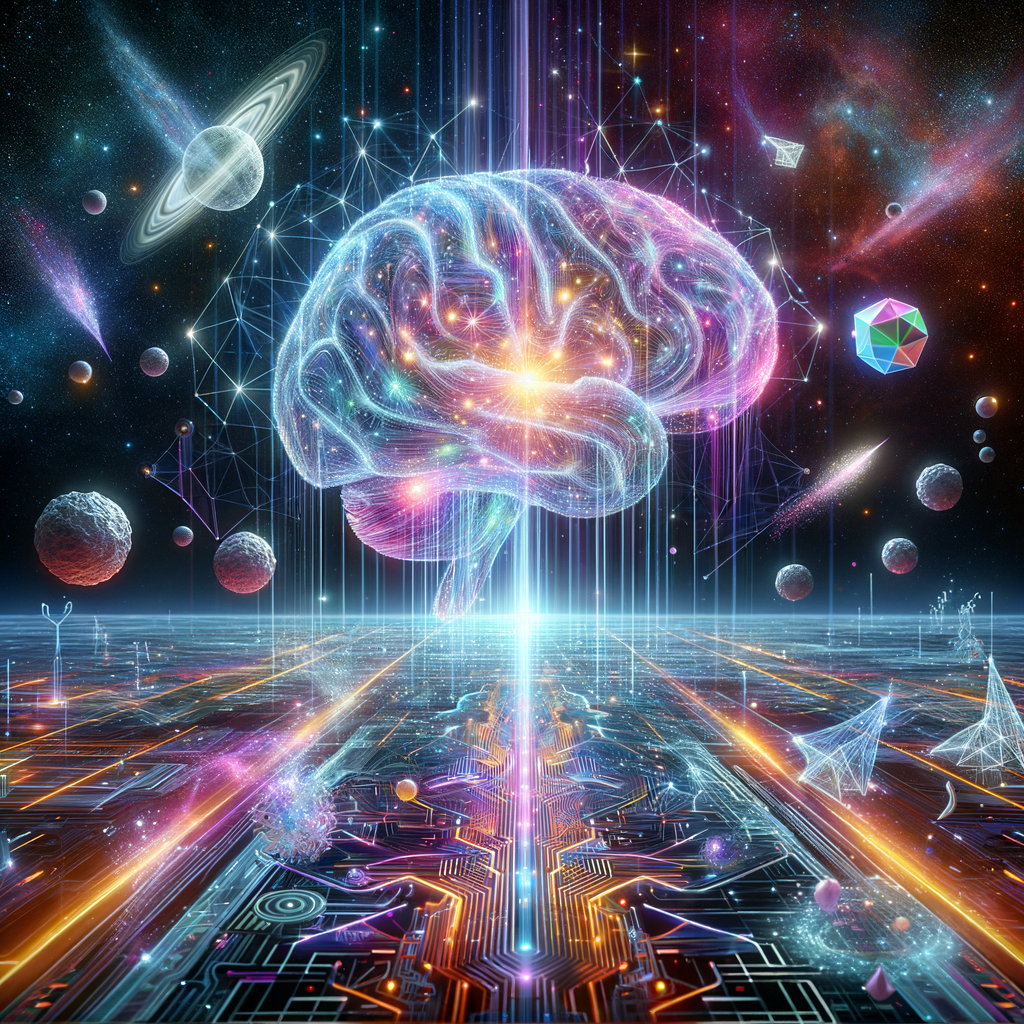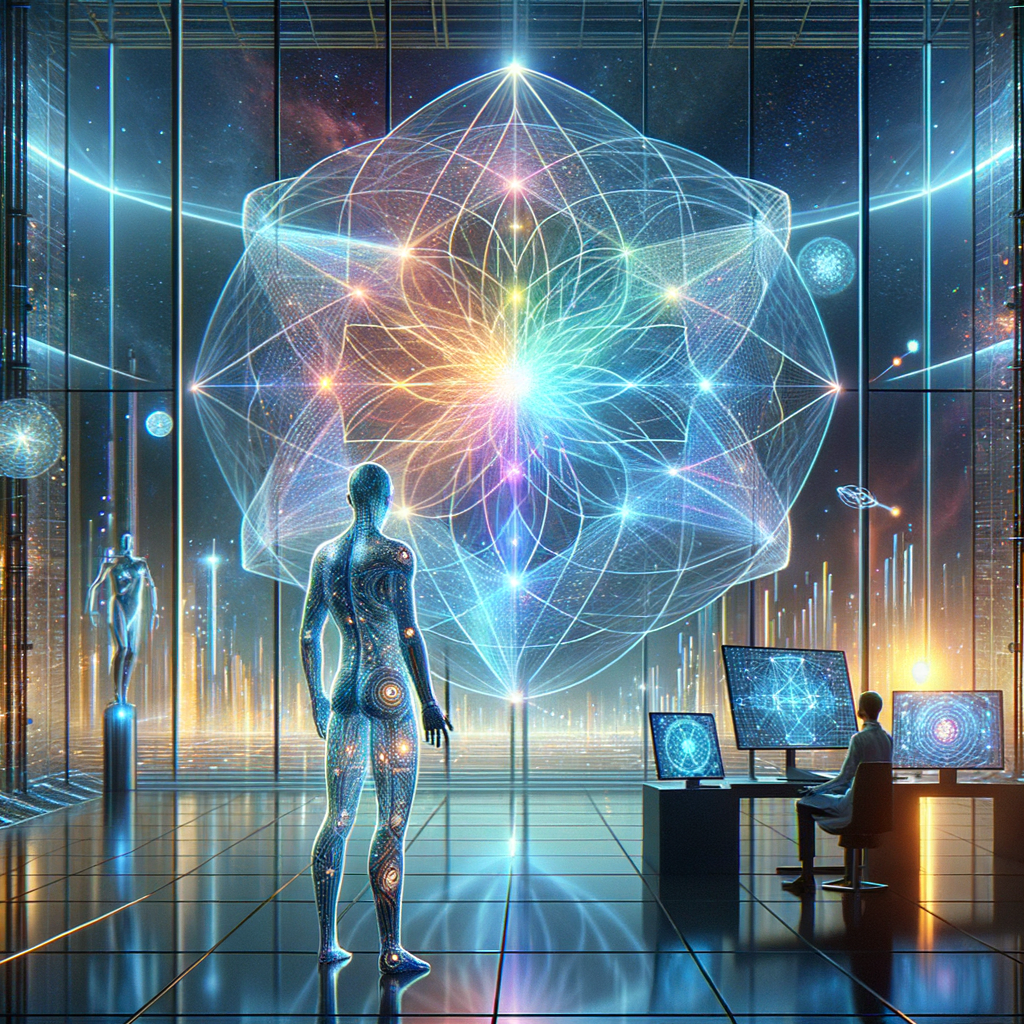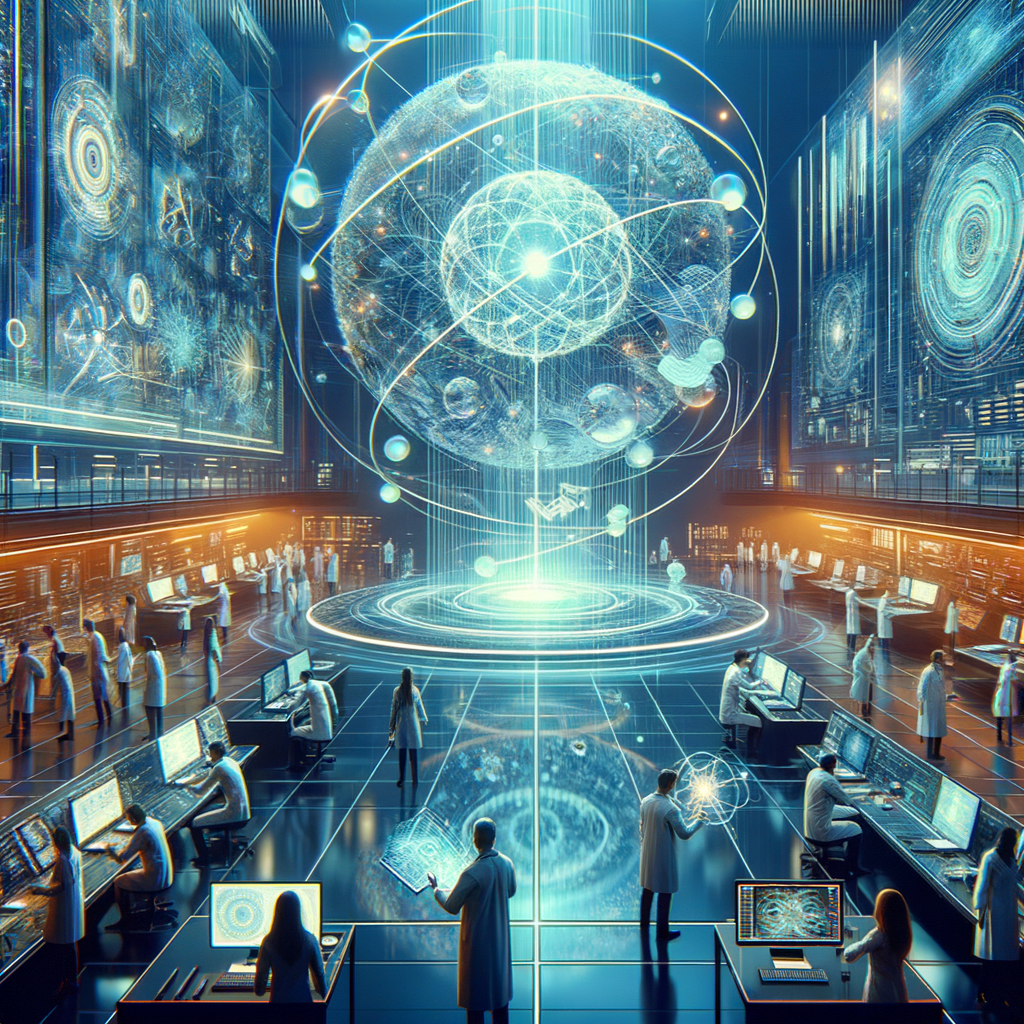 © 2023 / 2024 - QHIQ
© 2023 / 2024 - QHIQQuantum logic meets artificial insight.
Quantic Holographic Artificial Intelligence, or QHAI, might very well be the keystone that bridges the gap between quantum computing and AI. With the potential to exponentially increase computational power, QHAI leverages quantum superposition and entanglement to process complex data structures at speeds unattainable by traditional computing methods. It represents a paradigm shift in how we perceive computational prowess, relying on qubits that can exist in multiple states simultaneously, far surpassing the bit-based limitations of classical systems.
Harnessing holography: The next frontier in data representation.
The integration of holographic principles into AI systems enables multidimensional data representation. This means that data points can be visualized as holographic projections, capturing a vast spectrum of variables in a singular, coherent image. Holograms offer the unique advantage of storing and processing data as interference patterns, allowing QHAI to perceive and interact with data in a more nuanced and efficient manner. This holographic model of data presents immense potential for optimizing machine learning processes.
import numpy as np
from numpy.fft import fftn, ifftn
# Creating a 3D holographic projection
def holographic_projection(data):
interference_pattern = np.abs(fftn(data))
return ifftn(interference_pattern)
Recent advancements: Where we've arrived.
In recent years, the field of QHAI has seen impressive advancements. From breakthrough algorithms enhancing quantum noise reduction in holographic systems to pioneering practical implementations in quantum neural networks, the progression towards adept QHAI systems is promising. Innovative applications are emerging across fields such as secure communication through quantum cryptography and real-time data analysis in financial markets, hinting at a future where QHAI becomes a cornerstone of multiple industries.
Challenges: The mountain yet to climb.
Despite its groundbreaking potential, QHAI is not without its challenges. Quantum decoherence remains a significant hurdle, as qubits are incredibly sensitive to environmental disturbances which can lead to loss of quantum information. Furthermore, developing efficient error-correction algorithms that can robustly maintain quantum states over time is critical. Additionally, the nascent state of quantum hardware poses practical challenges in deploying QHAI systems on a wide scale.
def error_correction(qubit):
# Placeholder for a sophisticated quantum error correction algorithm
corrected_qubit = qubit # Implement correction logic
return corrected_qubit
The pursuit of a scalable quantum infrastructure.
Building a scalable quantum infrastructure is paramount for the future of QHAI. As startups like Quantum Holographic IQ strive to integrate QHAI into mainstream technology, scalability challenges, including cost-intensive quantum hardware and the need for specialized environments, become apparent. Incremental strides in quantum hardware research are crucial, with a focus on achieving higher qubit coherence times and greater qubit connectivity essential for robust system architectures.
Visualizing the QHAI-infused future.
The future of QHAI is envisaged as a powerful synergy of quantum mechanics and AI methodologies, promising to redefine industries. As companies delve deeper into this uncharted territory, the potential of QHAI to solve intractable problems, provide insights into complex systems, and optimize operations beyond conventional capabilities becomes more tangible. With continued innovation, we stand on the precipice of a new era where QHAI could lead to breakthroughs in areas such as personalized medicine, climate modeling, and autonomous systems.







